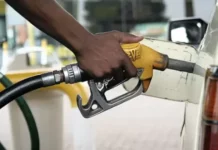The Chairman of the National Democratic Congress (NDC), Johnson Asiedu Nketiah, has hit back at critics over the new fuel levy.
He said the monies which will be accrued through the levy will not go to President John Dramani Mahama’s pocket but will be used for the purpose for which it was collected.
‘The 1-cedi levy will not go into Mahama’s Pocket,” he said.
The passage of the Energy Sector Levy (Amendment) Bill, 2025, sparked mixed reactions among some Ghanaians especially on social media including the opposition New Patriotic Party (NPP).
As a reaction to the proposed levy, The NPP has announced a protest in Kumasi. The mass protest has been dubbed the ‘Dumsor Levy’, less than 24 hours after Parliament approved the Energy Sector Levy (Amendment) Bill, 2025.
However, In a one-on -one interview on our flagship program ‘’Onua Maakye’’ hosted by Captain Smart , the Chairman of the National Democratic Congress (NDC), Johnson Asiedu Nketiah criticized the New Patriotic Party (NPP) government for worsening Ghana’s energy sector debt, which he says has grown significantly since the National Democratic Congress (NDC) left office in 2017, accusing the NPP of dishonesty and misleading a section of Ghanaians with untruths, especially commercial drivers.
He attributed Ghana’s power crisis to the mismanagement of revenues generated from the Energy Sector Levy Act (ESLA) by the then NPP government. He said ‘’NPP diverted revenues from ELSA and that prevented the US government from bringing in free funds to support ESLA.’’
Introduced under a certificate of urgency by the Minister for Finance, Dr Cassiel Ato Forson, the Energy Sector Levy (Amendment) Bill 2025 imposes a GH¢1 levy on petroleum products in a bid to rescue the country’s heavily indebted energy sector.
Dr. Ato Forson said this “energy sector levy” is meant to raise roughly GH¢5.7 billion annually to clear debts and purchase fuel for power plants.
He explained that Ghana’s energy sector is “heavily indebted” (about US$3.1 billion as of March 2025) and needs extra funding to meet obligations to Independent Power Producers, oil suppliers, and state utilities.
Dr. Ato Forson insisted the GH¢1 charge is essential to help end the intermittent power outages (the so-called “dumsor”) and stabilise the supply of electricity.
Originally set to start on June 9, the levy will now take effect on June 16, 2025.












